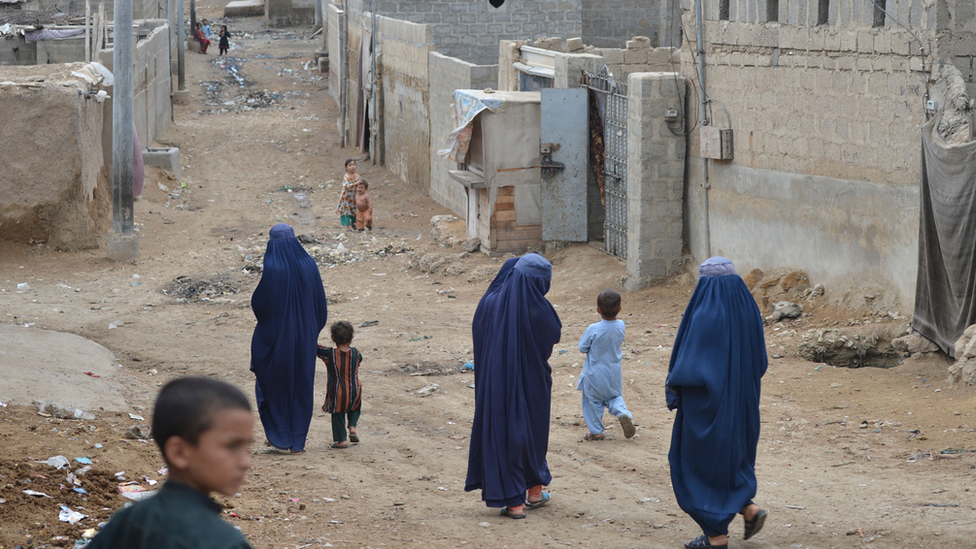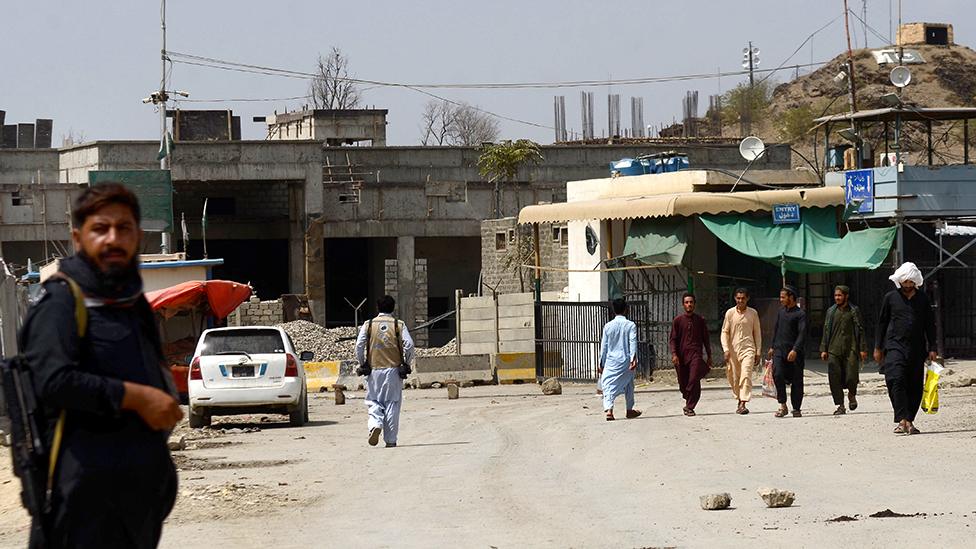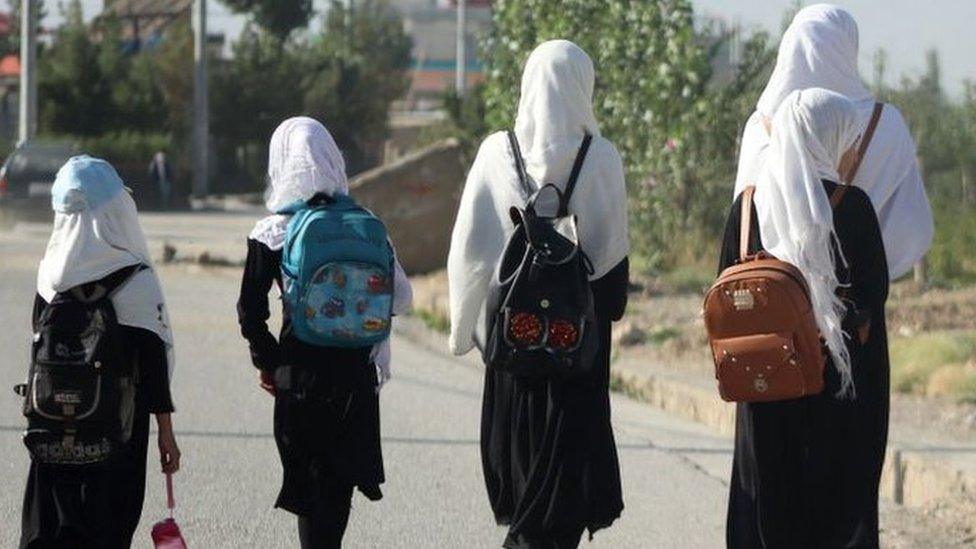UK to charter flights for Afghan refugees stuck in Pakistan
- Published

Some have been waiting in Pakistan for more than a year, according to charities
The UK government is to charter flights to relocate Afghan refugees living in Pakistan who have been promised UK visas, starting on Thursday.
Thousands of people who worked with or for the UK government in Afghanistan and fled the Taliban are in Pakistan, waiting for relocation to the UK.
Some have been waiting for over a year, according to charities.
Earlier this month, Pakistan said it plans to start deporting illegal migrants from 1 November.
Among the Afghan refugees in Pakistan are former translators for the British army and teachers for the British council, all part of either the Afghan citizens resettlement scheme, external or Afghan Relocations and Assistance Policy, external.
All went to Pakistan because the UK asked them to go to process their visas ready to start a new life in the UK.
But many of the refugees' visas have now expired.
And according to a risk assessment document revealed in court, the British authorities in Pakistan now consider people in this group to be "at risk of deportation".
Recent government figures show that around 3,250 men women and children on the UK's relocation schemes are living in guest houses and hotels in Pakistan's capital Islamabad.
While in Pakistan, they have no legal access to work and their children are not allowed to go to school.
Initially many thought they would be in Pakistan for a few weeks.
Documents released in court revealed how many face longer waits in part due to instructions by Prime Minister Rishi Sunak, banning their accommodation in hotels in the UK in all but extreme cases.
Instead, longer-term accommodation was to be found. An email released in the documents stated that this "should represent an overall net saving to the taxpayer".

The UK government is planning on sending several flights until December
Over the past few weeks the BBC has spoken to people on the UK's relocation programmes; many said they are afraid to leave their hotels.
According to official sources in Pakistan, the UK government is now planning on chartering several flights over the course of the next few months, until December.
The officials have said the first of these flights starts on Thursday.
The UK government has not said how many people will be onboard the first flight or how many are expected to be relocated before 1 November deadline.
The BBC understands that the government has decided that those on the relocation programmes will no longer need to be matched to so-called "suitable accommodation" before they arrive.
There was some hope, but also confusion about the news of the flights.
'No one knows who is first'
Jamal, not his real name, worked as a translator for the British army, and said he had not heard anything from the British authorities.
"Hopefully everyone will move soon, no one knows who is first, who is in the middle, who is last," he told the BBC.
Mahfouz, also not his real name, worked delivering projects for the UK government.
"I am just concerned what will happen if my family will not be on one of those flights until the end of December.
"My wife is pregnant and if we don't travel soon we may have to wait into next year," he said.
Those on the UK schemes are becoming increasingly nervous about the 1 November deadline.
Several told the BBC on at least two occasions where they had heard of police raiding accommodation and detaining people on the UK relocation schemes, who did not have the suitable documents to hand.
Even though they were released, it has left many frightened they could be sent back to Afghanistan.
The Taliban government has declared an amnesty for those who worked with international forces.
However, many people we spoke to talked about living in hiding before they left Afghanistan for Pakistan, scared, they said, of what might happen to them.
Some felt that by following the UK authorities' directions and leaving Afghanistan they had put themselves at increased risk.
Qasim - not his real name - worked with the UK authorities.
He said: "Before we left Afghanistan, our lives were in 50% danger. Now they are in 100% danger."
The UK authorities' risk assessment also acknowledges that things may change after 1 November.
The document states that they have stood a "reasonable chance of success" of securing release, if notified in time of someone on the scheme's detention.
But that "it is very difficult to judge we would be successful in every case if it were to happen frequently beyond 1 November and we were not informed or the eligible person didn't have the documents with them."
A UK Ministry of Defence spokesperson did not comment on the flights but said the UK had brought around 24,600 people from Afghanistan to safety, including thousands of people eligible for the country's Afghan schemes.
Additional reporting by Gem O'Reilly
Related topics
- Published13 October 2023

- Published16 August 2023
